The APEC story
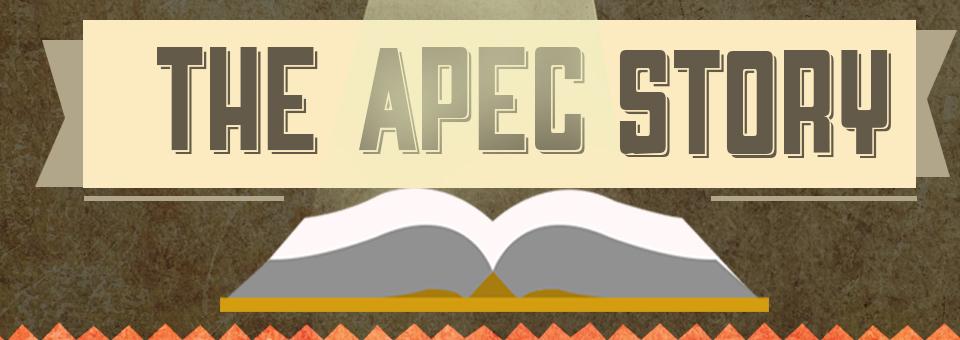
The stage is set for the main event of the year-long Philippine hosting of the Asia-Pacific Economic Cooperation (APEC).
Colossal security measures are in force, major roads are closed to give way to delegates, and the finest Barong Tagalog of piña fiber are ready for the traditional “family” picture.
For the second time in about two decades, the Philippines is hosting the APEC Economic Leaders' Meeting at the Philippine International Convention Center on November 18 and 19.
And for the second time, the Philippines is taking the lead role in advancing the APEC story that unfolded more than 26 years ago.
"APEC has,indeed, come a long way since its inception. It has evolved from being primarily a forum to encompass an agenda beyond trade issues and respond to the complex realities of our time," Foreign Affairs Secretary Alberto del Rosario said.
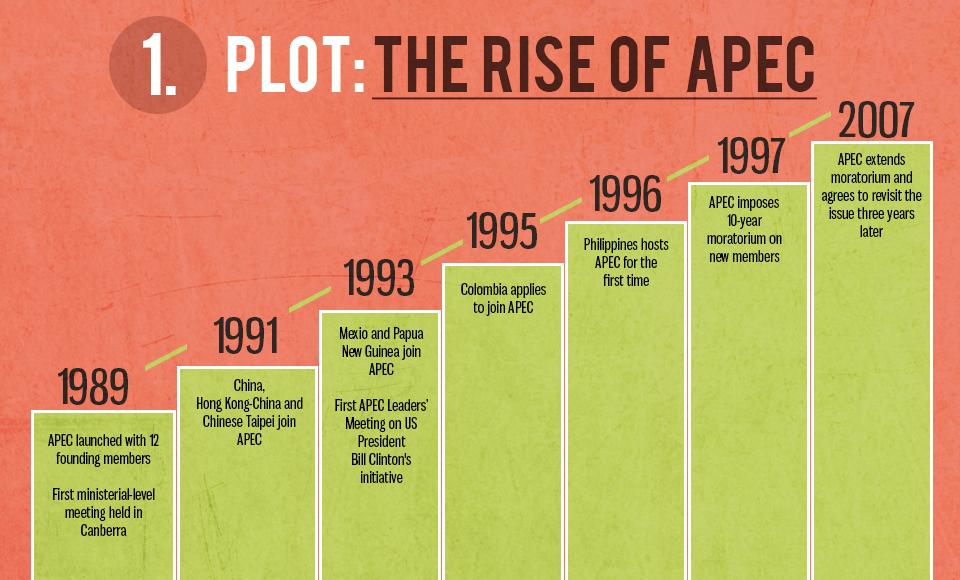
APEC rises
In January 1989, then Australian Prime Minister Bob Hawke floated the idea of forming a regional economic bloc during a speech in Seoul, South Korea.
It concept came around while the European Union was taking shape, the US was entering into bilateral agreements and the Uruguay Round of negotiations for the multilateral General Agreement on Tariffs and Trade was about to collapse.
"These changes partly provided an impetus for the exploration of new possibilities of regional economic cooperation in Japan and Australia,” International Relations Professor Takashi Terada wrote for the Australia-Japan Research Center at The Australian National University in 1999.
The idea supports the proposal of the Japanese Ministry of International Trade Industry and the Australian Department of Foreign Affairs and Trade for regional coordination in the late 1980s.
"It is safer to assert that to many countries it seemed a matter of some urgency that membership in one such trading bloc be sought as insurance,” Terada said.
Ten months after Hawke’s speech, the APEC was launched with its first meeting in Canberra, Australia.
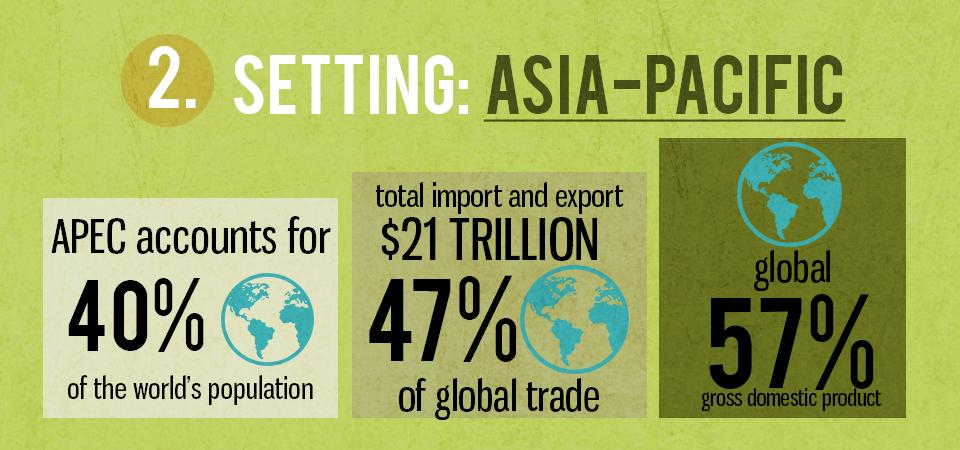
The region
The story of APEC is, of course, set in Asia and the Pacific, where at least 40 percent of the world's population live.
With its vast consumer base and labor force, the region accounts for $21 trillion or 47 percent of total import and export activities across the globe.
It also serves as a significant source of economic growth, producing 57 percent of the global gross domestic product.
The APEC gathers heads of state and other high-level government officials as well as business leaders and interest groups annually to discuss trade and investment .
The economic bloc was an informal forum for senior officials and ministers until former US President Bill Clinton initiated a leaders' summit in 1993.
“Here, within our communities, leaders from government and the private sector will map out the future of the Asia-Pacific,” President Benigno Aquino III said in December 2014 when the Philippines formally took over as APEC chair.
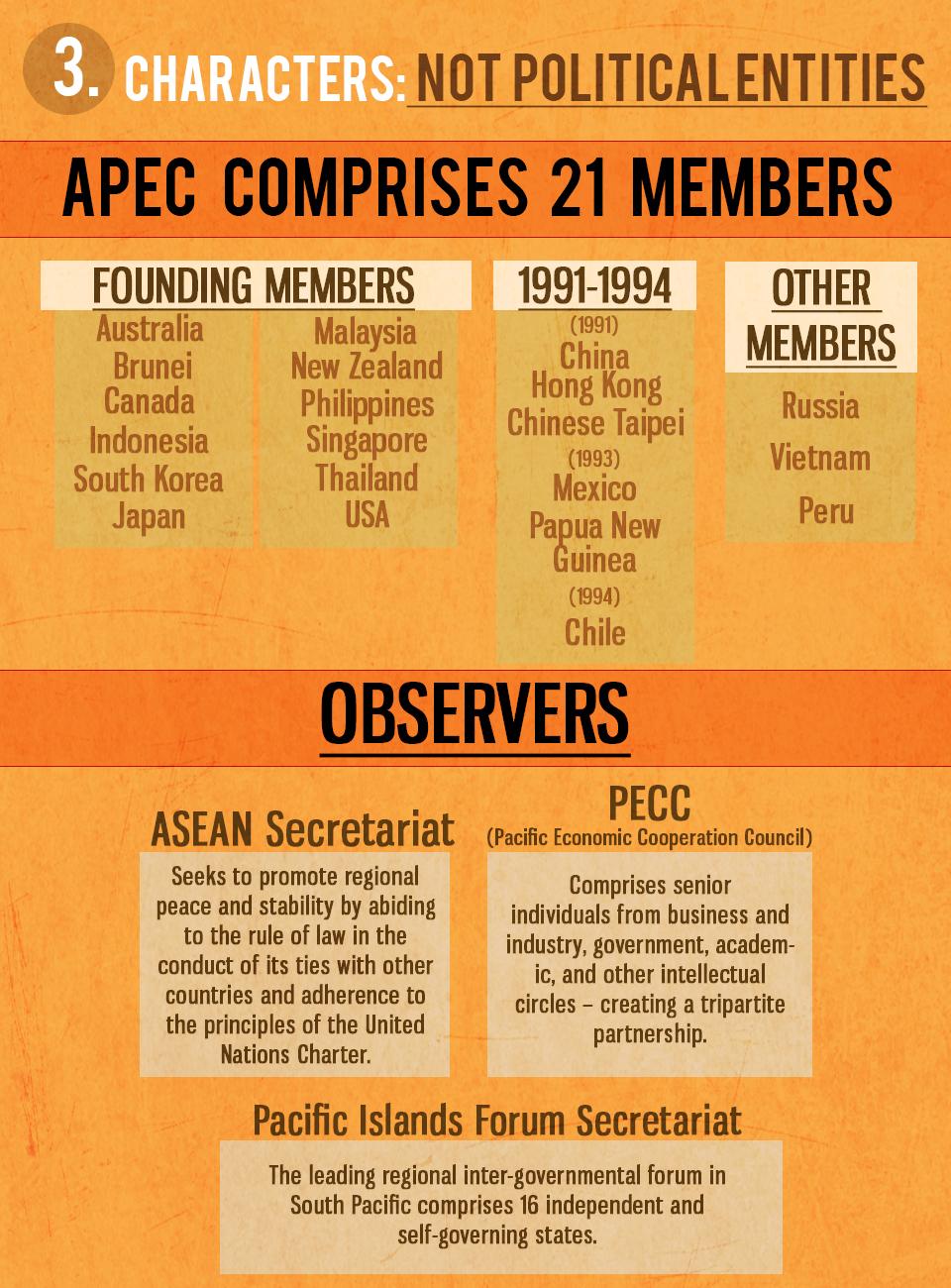
No politics?
APEC started with Australia, Brunei Darussalam, Canada, Indonesia, Japan, South Korea, Malaysia, New Zealand, the Philippines, Singapore, Thailand and the US as founding members.
In 1991, the group welcomed China, Hong Kong-China and Chinese Taipei as members. Mexico and Papua New Guinea joined in 1993, and Chile followed a year later.
Peru, Russia and Vietnam became full members in 1998.
Colombia attends APEC meetings as an observer. It started to seek membership to the economic bloc in 1995, but its application remains pending.
Sovereign political status, economic growth and trade with Asia-Pacific economies serve as the prerequisite for membership.
In 1997, APEC issued a 10-year moratorium on new members which was again extended.
"Keeping in mind the benefits of APEC membership, as well as the need for efficiency to achieve results, we will continue to review the question of new membership going forward," read the leaders' declaration in 2011.
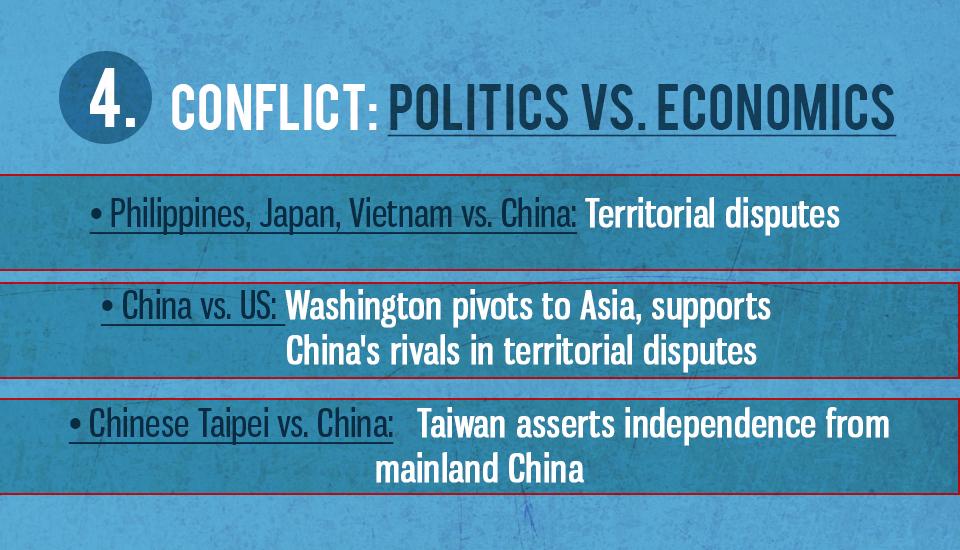
Politics vs. economics
Supposedly, politics have no place in APEC.
This is why members represent themselves as economies, not states, and why the group admitted Hong Kong-China and Chinese Taipei.
The Philippines also used this premise in foregoing its chance to raise territorial dispute with China over certain islands off the West Philippine Sea or South China Sea.
But whether or not economic issues can be separated from politics remains debatable.
"However convenient, it is misleading to regard them as two separate spheres of government or private relations," Brian Job and Frank Langdon, political science professors at the University of British Columbia, argued in a 1997 paper.
"And, it is accordingly misleading or naive to regard APEC as an apolitical institution,” the professors added.
Political conflicts are supposedly second nature to APEC members that constantly need to defend sovereignty and advance respective interests.
Even the Pacific Economic Cooperation Council (PECC) and the APEC Business Advisory Council (ABAC) acknowledge how politics come in the way of economic issues.
Political Science Professor Vinod Aggarwal illustrated this in a paper prepared for the ABAC-PECC feasibility study on the Free Trade Area of the Asia Pacific (FTAAP) in 2007.
“The reality of US trade politics, of relations between Northeast Asian economies, and of APEC’s relative institutional weakness make it highly unlikely that an FTAAP will come to fruition,” Aggarwal wrote.
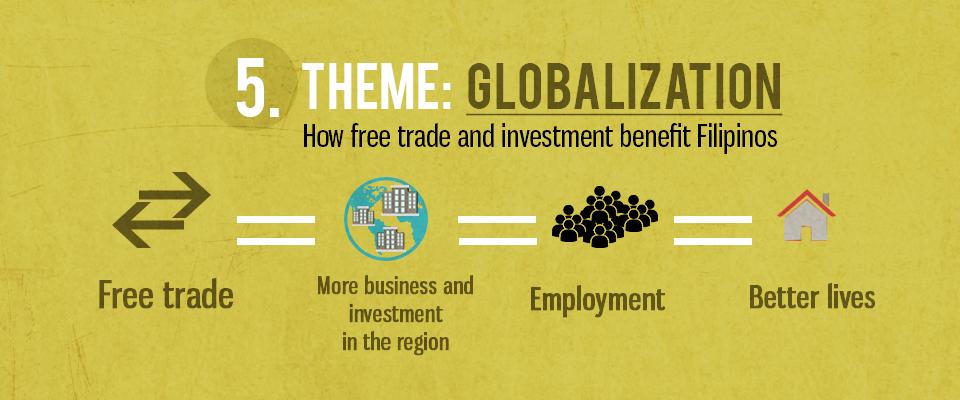
Growing global
Nevertheless, APEC members continue to share the same aspirations: sustaining economic growth and development.
For this year’s meeting the Philippines has set the APEC priorities on enhancing regional economic integration, expanding access of small business to global markets, investing in human capital development and building sustainable and resilient communities.
“The trade and investment aspects of our economy underpin our economic development, but we all recognize that we promote a development agenda as well,” said Ambassador Laura del Rosario, who chairs the 2015 APEC Senior Officials’ Meeting.
The proposals, however, are adopted on a voluntary basis that APEC was once labeled as a mere talk shop.
Yet, the economic forum is a venue for members to negotiate trade deals such as the Trans-Pacific Partnership that was introduced at the 2009 APEC meeting.
“We will know that we are successful in our work when our own people feel the incremental improvement in their lives. We also hope that in the coming years our work will have answered and will continue to address many questions and concerns," the ambassador said. – VS, GMA News




